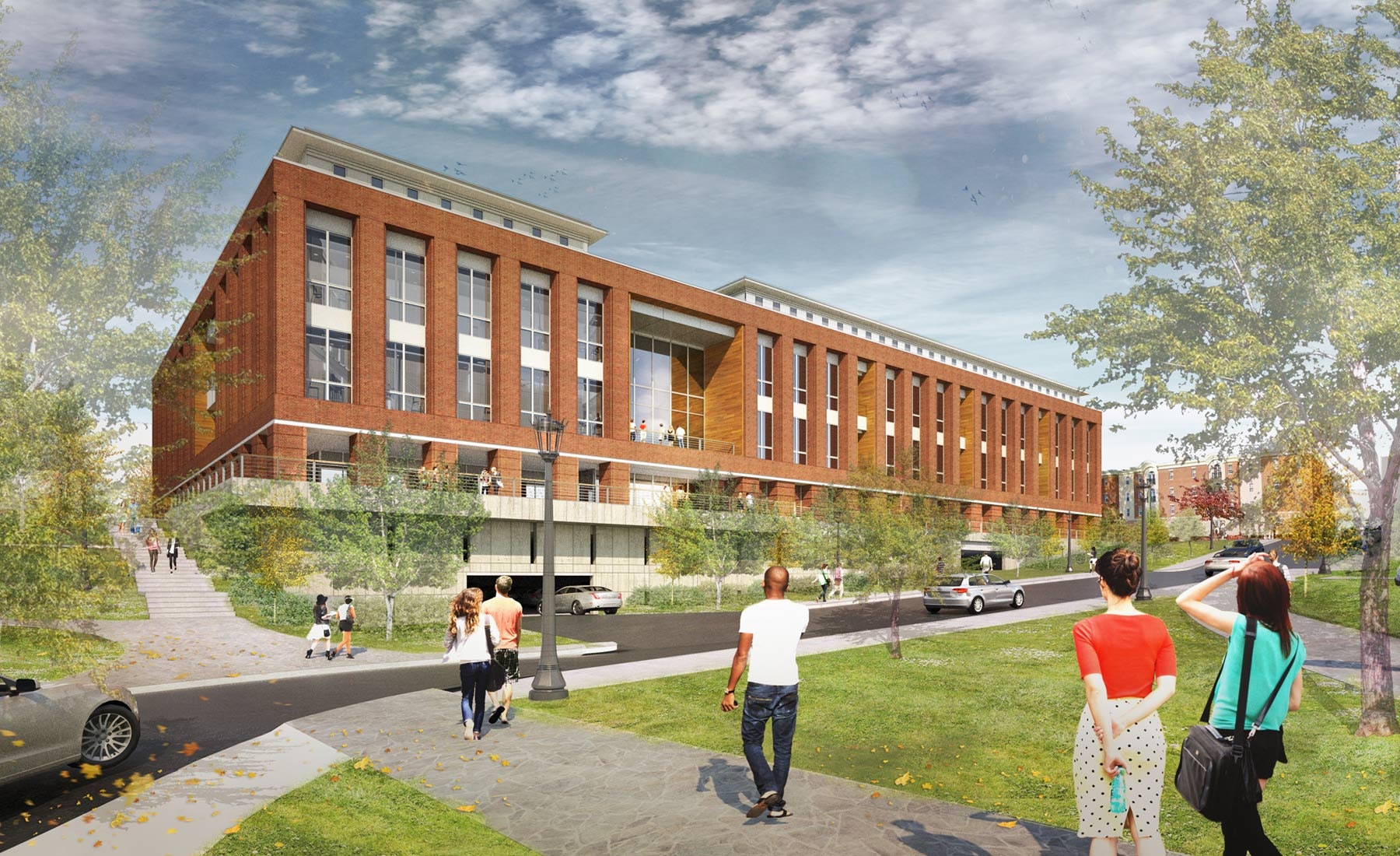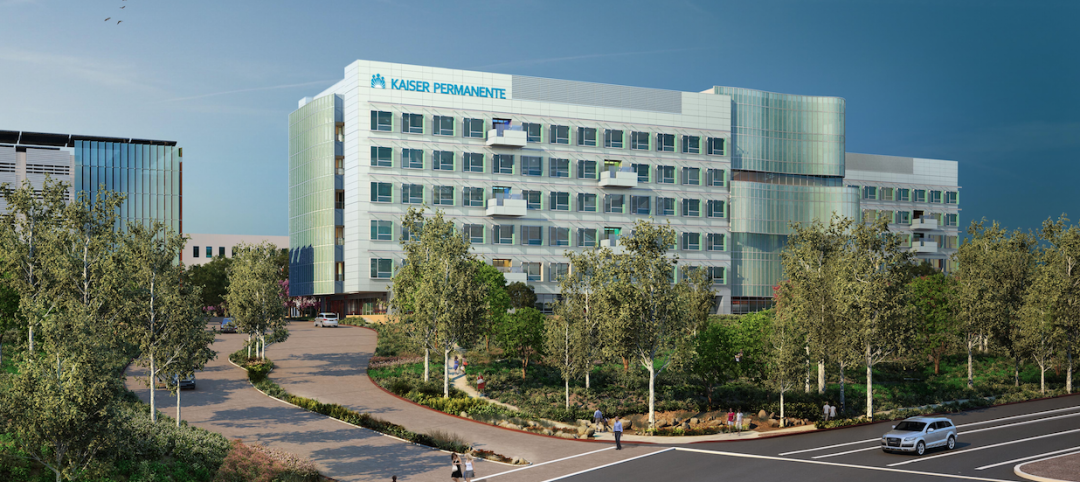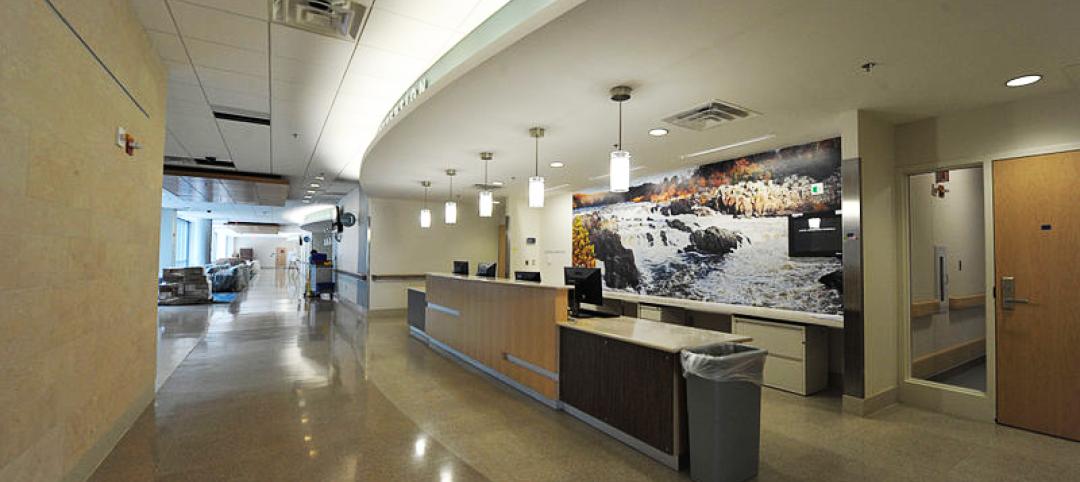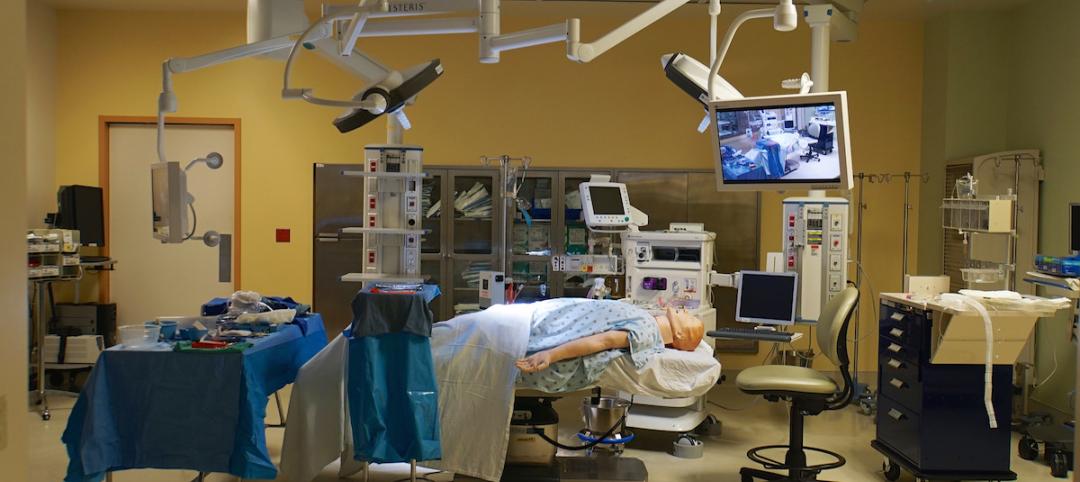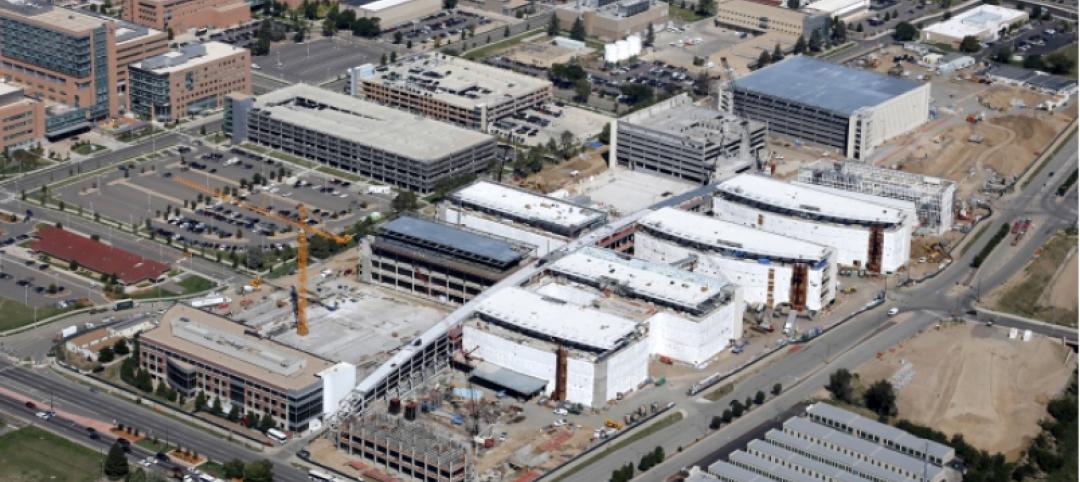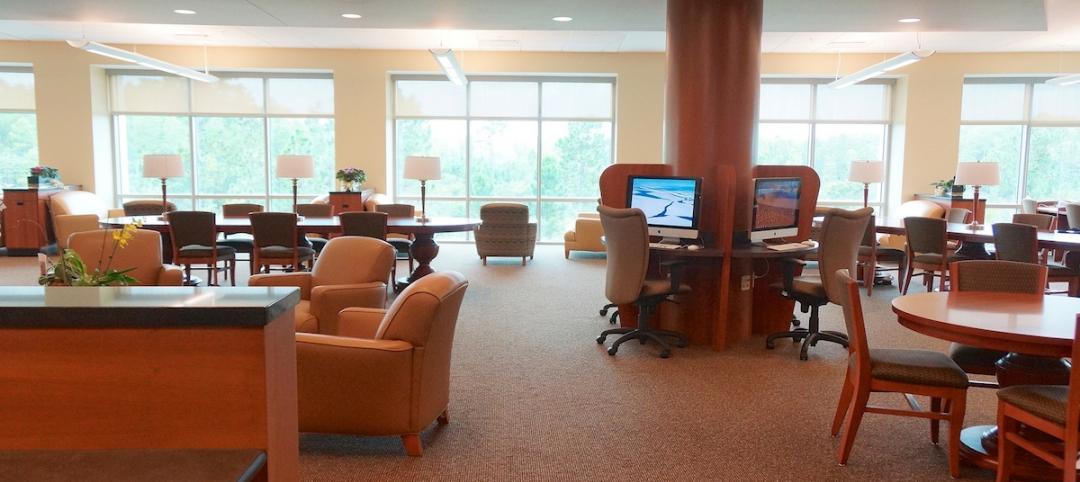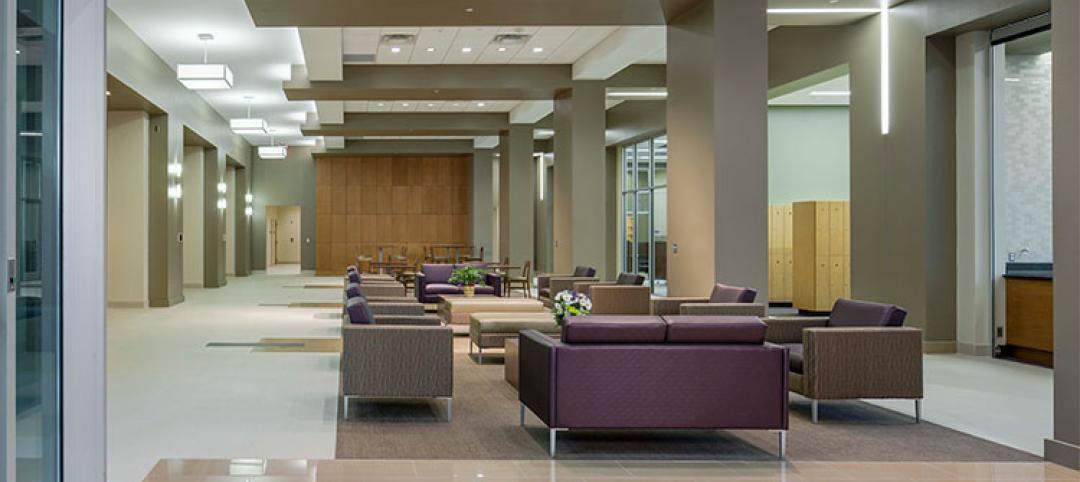Buildings offering wellness services are proliferating on college campuses.
Among the schools with student centers that include “wellness” in their titles and programming are Franklin & Marshall College, the University of Chicago, Cal State Fullerton, Texas Tech, Stevens Institute of Technology, College of the Holy Cross, New York University, the University of Utah, Duke University, and Rutgers University.
Wellness “is redefining the typology,” says Scott Baltimore, an architect with Duda|Paine Architects in Durham, N.C., which has carved out a specialty in wellness design. He elaborates that more schools are taking a “synergistic” approach that brings different services and academic departments under one roof, thereby making the building more of a destination.
This transformation has also been “institutional,” says Turan Duda, FAIA, the firm’s Founding Principal. Parents want to know where their kids can go if their educational journey suffers a medical or psychological setback, particularly in the area of depression. More to the point, says Duda, are the “preventive” services that wellness suggests, a “safe place” where students can turn to for help and interaction.
AN EVOLVING FIELD
That colleges and universities are using wellness centers as part of their marketing and recruiting isn’t surprising. But what constitutes “wellness” depends on the school, and can be intentionally ambiguous, says Duda, because “this field is evolving.” To cite one unusual example, Duke University attracted more male students to its wellness center only after it introduced a “drumming circle” to its programming.
One of Duda|Paine’s projects is the recently completed University of Virginia Student Health & Wellness Center in Charlottesville, which the firm designed in collaboration with WMDO Architects, a frequent partner with the university. The project’s construction manager was Barton Malow, and the building pursued the International WELL Building Institute’s WELL Building Standard certification.
This 169,000-sf building, which replaces the school’s Elson Student Health Center, emphasizes wellness and preventive healthcare. It integrates student life and healthcare by introducing students to critical aspects of social, physical, psychological, personal, and environmental wellness. The project also brings together all the major campus health departments—General Medicine, Gynecology, Counseling and Psychological Services, Office of Health Promotion, and the Student Disability Access Center—as well as the Kinesiology Department and student wellness spaces.
During the building’s design phase, WMDO conducted workshops that included a virtual-reality simulation of the center’s entrance to assess different scenarios of student well-being. Another workshop focused on “journey mapping.”
The resulting four-story building is organized around an open and light-filled entry and multi-story lobby, with generous daylighting into all departments, and improved orientation and wayfinding. On the ground floor, level with the exterior ground plane to optimize visibility and accessibility, the Office of Health Promotion presents the “first stop” for students, while the Student Disability Access Center is convenient and central, overlooking the south pond.
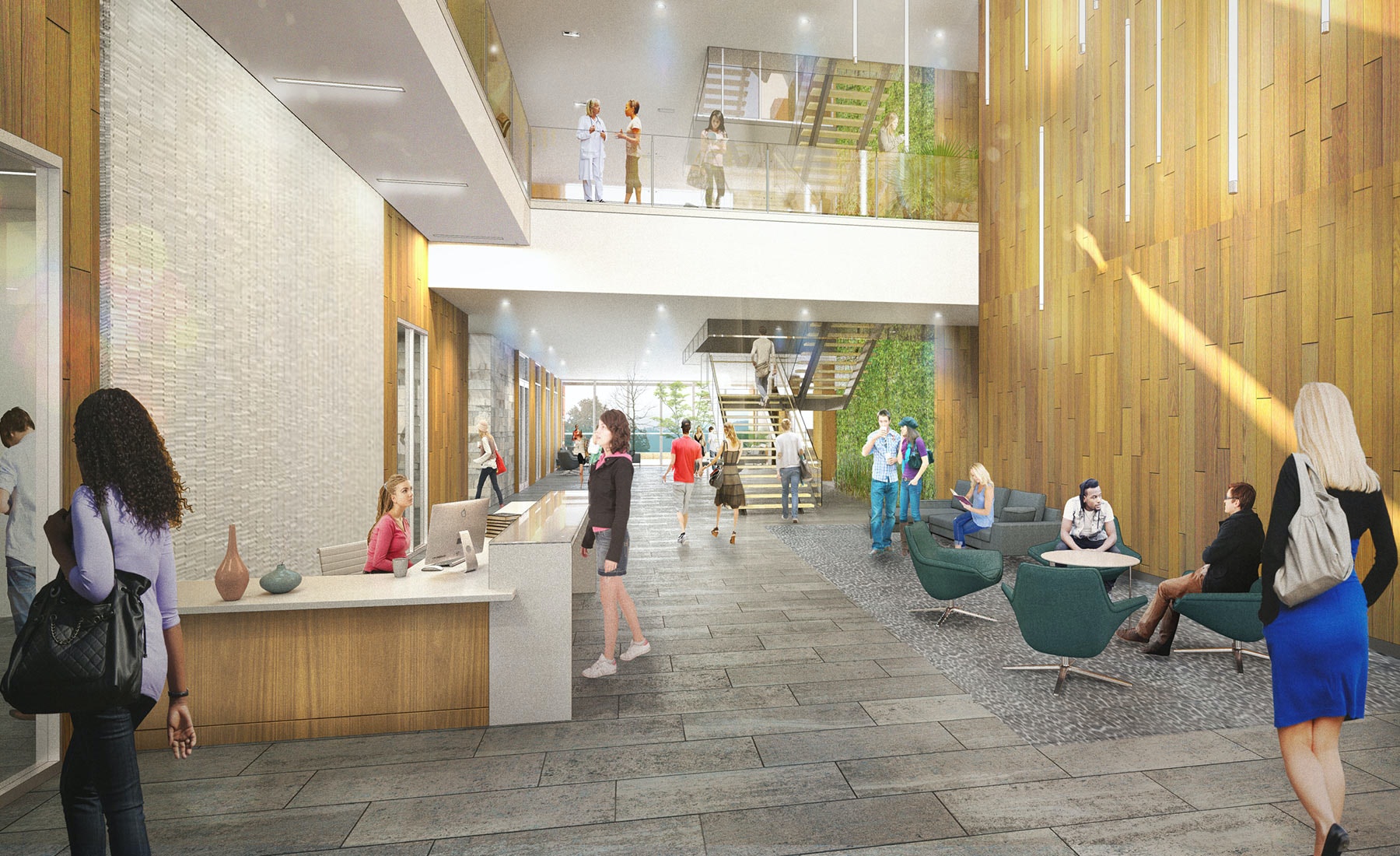
PART OF A LARGER MASTER PLAN
Spaces on the ground level create opportunities for program synergies and community outreach. These include a pharmacy and retail space, and a teaching kitchen that provides classes on healthy eating habits and nutrition. (Duda sees this kitchen as another of the center’s “preventive” services. “Wellness centers are giving special attention to experiences,” says Duda, from the parking lot to the “choices” in services the center makes available to students.)
An Education/Multi-Purpose space adjacent to the main lobby supports functions such as yoga, special events, staff meetings, and wellness education. These spaces facilitate interaction and the exploration of alternative methodologies in wellness education.
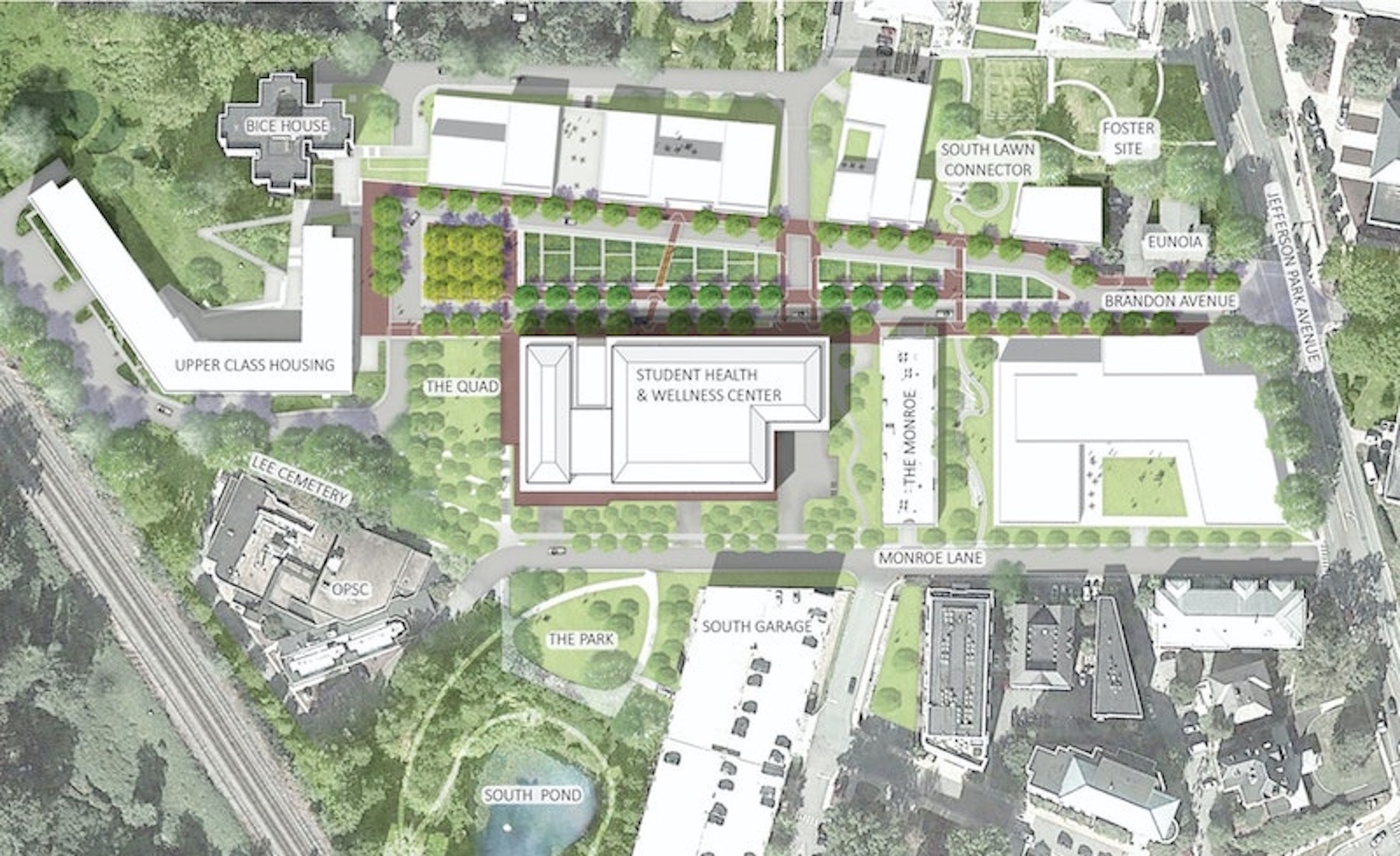
The University of Virginia’s Student Health & Wellness Center is located close to the school’s historic quad. The building is also the first development within the Perkins and Will-designed Brandon Avenue Precinct Master Plan that eventually will include housing and other mixed-use buildings along a “green street,” and weave the university’s Central Grounds and the Health System Campus.
Related Stories
Healthcare Facilities | Dec 29, 2015
Wood materials aid in patient recovery in healthcare environments
Report says patient recovery times, pain perception, stress levels improve where natural materials are present.
Healthcare Facilities | Dec 15, 2015
What the Bipartisan Budget Act of 2015 means for healthcare real estate development
CBRE Healthcare's Charles Maggio breaks down the impacts of the new legislation, which affects outpatient facilities.
Greenbuild Report | Dec 10, 2015
Sustainable performance: Hospital systems’ new financial and marketing imperative
Several years ago, the healthcare industry would have ranked in the bottom tier among adopters of sustainable design and construction. Now, it is outpacing other nonresidential sectors in moving toward high-performance, healthy environments.
Healthcare Facilities | Dec 2, 2015
Check out Perkins+Will’s ultra-transparent research center for the Allen Institute for Brain Science
The design orients labs like flower petals around a large light-filled central atrium; the effect is like the inside of a bee hive where researchers can see each other and what they are doing.
Healthcare Facilities | Nov 6, 2015
Paint company unveils product that can kill bacteria in hospitals
The new product from Sherwin-Williams, called Paint Shield, is said to not only kill over 99.9% of dangerous bacteria, but also reduces growth of “common microbes.”
Healthcare Facilities | Nov 4, 2015
Hospital designers get the scoop on the role of innovation in healthcare
“Innovation” was the byword as 175 healthcare designers gathered in Chicago for the American College of Healthcare Architects/AIA Academy of Architecture for Health Summer Leadership Summit.
Healthcare Facilities | Nov 2, 2015
Final funding comes through to complete over-budget and behind-schedule Denver VA Medical Center
The Department of Veterans Affairs, cited for its mismanagement, is stripped of control over future major construction.
Healthcare Facilities | Oct 23, 2015
Mortenson study: Healthcare providers optimistic, but want changes to Affordable Care Act
The 2015 Mortenson Healthcare Industry Study found that 76% of providers are at least optimistic about the future of healthcare, but eight out of 10 would like to see changes made to ACA.
Healthcare Facilities | Sep 29, 2015
The ever changing physician real estate market
In the United States, the environment where outpatient healthcare is being delivered is as dynamic and diverse as the more high profile office and retail markets, writes CBRE Healthcare's Nelson Udstuen.
Healthcare Facilities | Sep 21, 2015
5 reasons healthcare organizations are implementing finish standards on construction projects
The desire for improved patient satisfaction, staff retention, and turn-key maintenance are among the top reasons more healthcare groups are implementing finish standards in their spaces, according to VOA Associates' Lauren Andrysiak.


